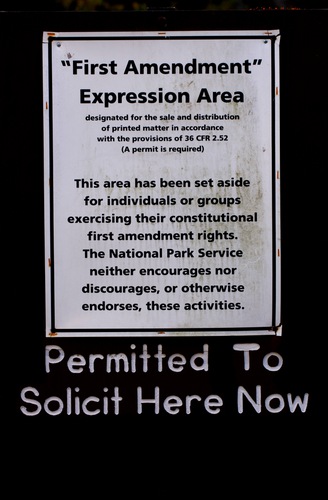 Although Google has been the subject of multiple antitrust investigations related to how they arrange search results and rank Web sites, a new 27-page report suggests that Google should be offered the same First Amendment rights as a newspaper. The report, which was commissioned by Google, makes a strong case that search engines are protected by the First Amendment and that the government cannot attempt to control the search results in any way.
Although Google has been the subject of multiple antitrust investigations related to how they arrange search results and rank Web sites, a new 27-page report suggests that Google should be offered the same First Amendment rights as a newspaper. The report, which was commissioned by Google, makes a strong case that search engines are protected by the First Amendment and that the government cannot attempt to control the search results in any way.
Eugene Volokh, a UCLA law professor, First Amendment expert, and the author of the “First Amendment Protection for Search Engine Results” report said the following:
“Google, Microsoft’s Bing, Yahoo! Search and other search engine companies are rightly seen as media enterprises, much as the New York Times Company or CNN are media enterprises.”
Since Google and the other search engines are media enterprises, the report argues that they have a constitutional right to exclude or include certain Web sites and information from their results. In the report, Volokh also indicated that the search results are a direct product of an algorithmic “opinion” based on what is best for the end-user. The report claimed that the same laws that protect news aggregators, such as the Drudge Report and the Huffington Post, will protect Google from antitrust legal action.
When Paid Content asked Google why they commissioned the report, the search engine stated, “we thought these issues were worth exploring in more depth by a noted First Amendment scholar.” However, with multiple antitrust investigations by the U.S. government, the European Union, and other foreign governments, Google is probably planning to use this report to bolster its legal positions.
When an Oklahoma ad agency sued Google in 2003 for decreased rankings, the federal judge ruled that the search engine’s actions were protected by free speech. In 2007, a California court ruled that Google’s rankings were private property and that they had the right to choose the businesses they feature in the search results.
While this report and the legal precedent related to free speech may further Google’s case in the U.S. court system, the prominent search engine is unlikely to find success with the First Amendment argument in Europe, South Korea, and other foreign countries.
Do you think that search engine results should be protected by the First Amendment or could this result in monopolistic control of information?
Sources Include: Paid Content, CNet, & slideshare
Image Credit: Shutterstock

